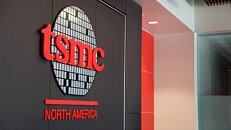
Original Nintendo Switch Gets Price Bump in Canada
Mere weeks after Nintendo launched the Switch 2 to international audiences, the Japanese gaming giant has announced that the original Nintendo Switch will be subject to price increases in Canada. In a press release announcing the price increase, Nintendo of Canada confirms that all original Nintendo Switch consoles, including th OLED and Lite models, physical and digital games, and Switch accessories—as well as the Amiibo and Nintendo Switch Online memberships—will be affected by the price change.
In the announcement, Nintendo blames "market conditions" for the price change and specifies that the Nintendo Switch 2 will not be affected by the price change. According to Eurogamer, the price adjustment may be related to the strained international trade relations between Canada and the United States, and the price change comes after Nintendo briefly delayed the Switch 2's launch in both the US and Canada in response to tariffs imposed by the United States. Nintendo has not announced what the price increase will look like, but it has confirmed that the price increases will take effect on August 1, whereupon Nintendo of Canada will announce the new pricing.
In the announcement, Nintendo blames "market conditions" for the price change and specifies that the Nintendo Switch 2 will not be affected by the price change. According to Eurogamer, the price adjustment may be related to the strained international trade relations between Canada and the United States, and the price change comes after Nintendo briefly delayed the Switch 2's launch in both the US and Canada in response to tariffs imposed by the United States. Nintendo has not announced what the price increase will look like, but it has confirmed that the price increases will take effect on August 1, whereupon Nintendo of Canada will announce the new pricing.





















































